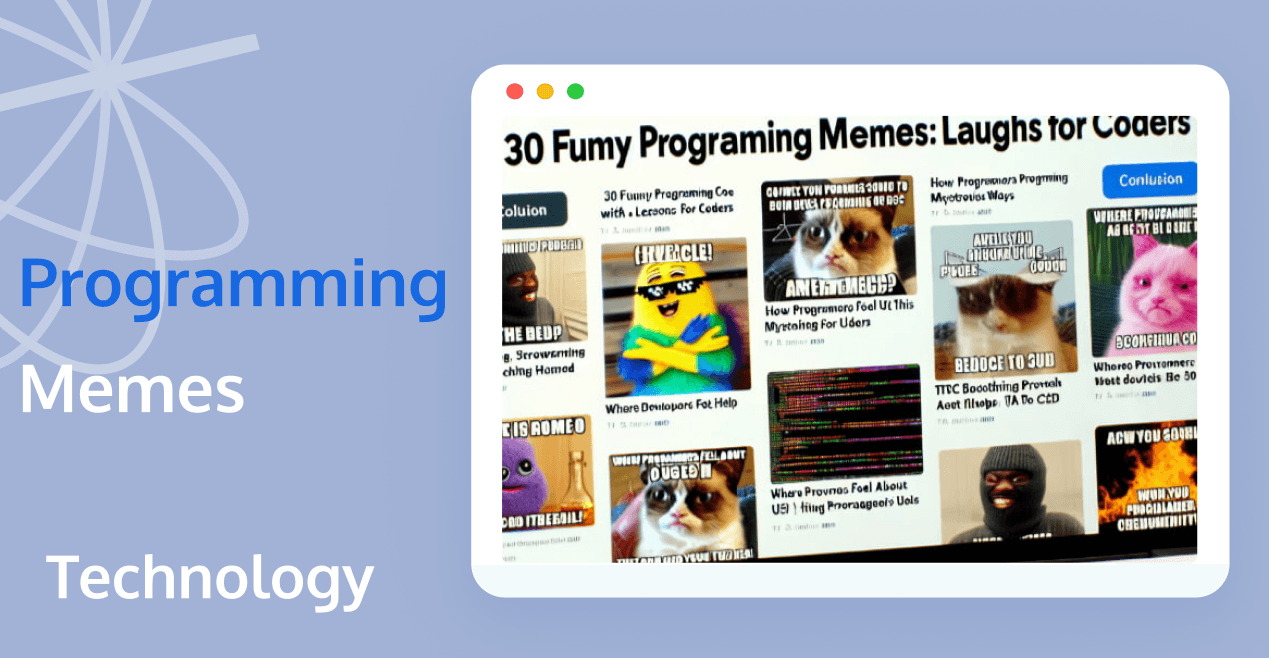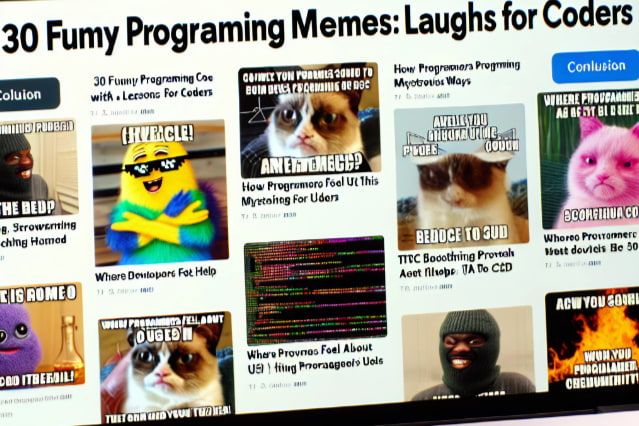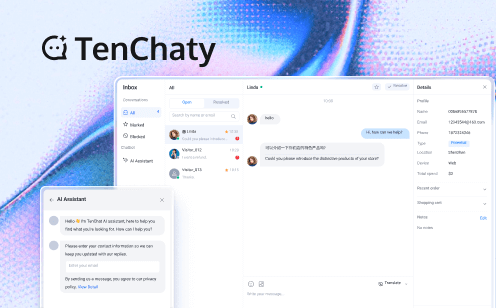
Programming is like riding a rollercoaster with your hands tied to your keyboard—full of ups, downs, and loop-de-loops. Luckily, humor is the seatbelt that keeps us from flying off into the abyss of debugging despair. Funny programming memes are our pit stops, offering laughs and a breather from those pesky lines of code that refuse to cooperate.
In this article, we’re diving into 30 side-splitting programming memes that capture the hilarity and chaos of coding life. We’ll take a look at the quirky ways code is humorously depicted and how these memes give us a chuckle about the coder’s daily grind, interactions with users, and our favorite troubleshooting methods. Plus, we’ll chat about how tools like the TRTC SDK can be a creative booster for those times when your code feels more like a puzzle than a masterpiece.

30 Funny Programming Memes
Memes are a universal language among programmers, capturing the essence of their daily struggles and victories. Here are 30 funny computer programming memes that will surely resonate with anyone familiar with coding:
1. "I don’t always test my code, but when I do, I do it in production."
A humorous take on the risky practice of deploying untested code.
2. "Why do programmers prefer dark mode? Because light attracts bugs."
A joke about the preference for dark mode among developers.
3. "I'm not a magician, but I can see why your code doesn't work."
Highlighting the expectation to solve complex problems quickly.
4. "Hello World" – every programmer’s first line of code.
A nod to this simple yet significant introduction to coding.
5. "Programmer: I’ll fix it tomorrow. Tomorrow: I’ll fix it later."
Capturing the procrastination often seen in debugging.
6. "Code like you are not afraid of the compiler."
Encouraging confidence in writing code.
7. "There are only two hard things in computer science: cache invalidation and naming things."
Joking about common difficulties in programming.
8. "To understand recursion, you must first understand recursion."
A self-referential joke about the complexity of recursion.
9. "When you finally fix a bug after hours of debugging."
Celebrating the satisfaction of solving a tough issue.
10. "If at first you don’t succeed, call it version 1.0."
A playful approach to iterative development.
11. "Writing code without testing is like playing a game with cheat codes."
Emphasizing the importance of thorough testing.
12. "I have a bug in my code. I’m going to have a coffee and let it debug itself."
Describing the common strategy of taking a break.
13. "Programmer: Someone who solves a problem you didn’t know you had in a way you don’t understand."
Illustrating the often opaque nature of programming solutions.
14. "The problem with troubleshooting is that trouble shoots back."
Reflecting the challenges of debugging.
15. "I don’t always write comments, but when I do, they’re outdated."
A joke about neglecting to update code comments.
16. "In code we trust. All others bring data."
A humorous take on the reliance on data.
17. "Code is like humor. When you have to explain it, it’s bad."
Emphasizing the importance of clear code.
18. "When you finish writing code and realize you haven’t saved a single file."
The horror of losing unsaved work.
19. "My code doesn’t work, I have no idea why. My code works, I have no idea why."
Capturing the mystery of coding successes and failures.
20. "Why do programmers hate nature? It has too many bugs."
A pun on the term “bugs” in programming and nature.
21. "The best way to get a project done faster is to make it a requirement."
Highlighting the common strategy of setting tight deadlines.
22. "When you copy and paste code and it works perfectly, you feel like a wizard."
The satisfaction of code functioning correctly on the first try.
23. "I’m a developer, I’m not a magician."
Addressing unrealistic expectations of programmers.
24. "If debugging is the process of removing bugs, then programming must be the process of putting them in."
A tongue-in-cheek comment on coding and debugging.
25. "I write code that is full of errors, but that’s why I’m a programmer."
Embracing the iterative nature of programming.
26. "When the code works, but you have no idea why."
The satisfaction mixed with confusion of successful code.
27. "I don’t need a hairdresser; my pillow gives me a new hairstyle every morning."
A playful contrast to the coder’s appearance and work.
28. "You can’t spell ‘debug’ without ‘bed.’"
A humorous link between debugging and rest.
29. "When you finally fix that one bug you’ve been chasing for days."
The joy of resolving a persistent issue.
30. "When you review the code you wrote last year and finally understand what you were thinking."
Clarity strikes after months of confusion over old code.
Memes Describing Code and its Mysterious Ways
Programming memes often capture the mysterious and complex world of coding. They highlight the frustrations of dealing with unexpected bugs and the endless cycle of debugging. These memes show that while code may appear straightforward, it is often filled with intricate logic and hidden challenges.
Programmers use memes to share the unique insight required to solve coding puzzles, like understanding recursion and managing logic puzzles. These memes offer a fun and relatable way to connect over the quirks of coding, providing a humorous break from the serious nature of software development.
How Programmers Feel about Users
Ever wondered what goes down when programmers meet users? Here’s the meme-tastic truth:
User Request: “Can you add this feature?”
Programmer: “Sure, right after I finish fixing the last 10 bugs that appeared because of your last request.”
User: “It’s simple, just a tiny tweak!”
Programmer: “That’s what she said... before I spent 3 days rewriting the entire codebase.”
User Feedback: “The app crashed!”
Programmer: “Ah yes, my favorite game: Find the bug in the haystack.”
When the user says “It’s just a small problem”:
Programmer: “It’s never just a small problem. It’s a full-blown code apocalypse.”
When users don’t read the manual:
Programmer: “Sure, let me just translate the entire documentation into memes for you.”
After dealing with user complaints:
Programmer: “I don’t need a vacation. I need a time machine to undo this request.”
User demands vs. reality:
Programmer: “If only coding was as easy as users think it is.”
When users say “It worked before!”
Programmer: “Ah, the legendary ‘before’ state: A myth wrapped in nostalgia.”
When the user’s idea is a bit too ambitious:
Programmer: “Sure, we can do that. Just let me summon the mythical ‘Infinite Development Time’ first.”
User’s favorite line: “Why can’t you just fix it?”
Programmer: “Because it’s not magic, it’s code. And code has a sense of humor—just not the kind you’d appreciate.”
Where Developers Get Help
When programmers encounter issues, they often turn to a variety of resources for support. This section explores the different avenues developers use to seek.
Online Communities and Forums
One of the most popular and accessible resources for developers is online communities and forums. Platforms like Stack Overflow, Reddit’s r/programming, and GitHub provide a wealth of knowledge and support from fellow developers. These forums are invaluable for troubleshooting issues, sharing knowledge, and receiving guidance from a broad community.
Documentation and Tutorials
Official documentation and tutorials are another crucial source of help. Comprehensive documentation provides details about programming languages, libraries, and frameworks, while tutorials offer step-by-step guidance on various topics.
Colleagues and Mentors
Many developers also turn to colleagues and mentors within their workplace for assistance. Collaborating with peers or seeking advice from more experienced developers can provide practical solutions and valuable insights. This direct, interpersonal support is often quicker and more tailored to specific problems than online resources.
Educational Platforms and Courses
Educational platforms like Udemy, Coursera, and Codecademy offer structured learning and support. These platforms provide courses on a range of programming topics and can be a valuable resource for solving specific issues or improving skills.
Stack Overflow’s Collective Wisdom
Lastly, Stack Overflow stands out as a unique and vital resource. It’s a repository of collective knowledge where developers ask and answer questions on a wide range of programming topics.
TRTC SDK: Boosting Programmer Creativity
The Tencent RTC SDK (Tencent Real-Time Communication SDK) is a powerful tool for developers, designed to effortlessly integrate real-time communication features into applications. With robust support for voice and video calls, live streaming, and cross-platform connectivity, it ensures a seamless user experience even under challenging network conditions.
TRTC's comprehensive and flexible platform allows developers to focus on innovation rather than getting bogged down by technical complexities. By leveraging TRTC, programmers can create highly engaging and interactive applications, enhancing the scope and functionality of their projects. This SDK is an essential resource for those looking to elevate their development work and push the boundaries of what’s possible with real-time communication.
Conclusion
Funny programming memes capture the rollercoaster ride of coding—the highs, the lows, and the occasional "why am I doing this to myself?" moment. They remind us that laughter is not just a great way to cope with debugging nightmares, but a vital tool in surviving the coding grind.
But let’s not forget, while memes keep us chuckling, tools like the TRTC SDK are like the cherry on top of our coding sundae. They boost our creativity and turn our wildest coding dreams into reality—minus the bug-induced nightmares.
So, whether you're laughing at a meme or crafting the next big thing with the TRTC SDK, remember: blending humor with high-tech tools is the secret recipe to enjoying the coding journey. After all, who says you can’t have fun while you code your way to greatness?
If you have any questions or need assistance online, our support team is always ready to help. Please feel free to Contact us or join us on Telegram or Discord.


